- Home
- Daphne Du Maurier
The Birds and Other Stories Page 13
The Birds and Other Stories Read online
Page 13
This was now possible, because Victor, who would have claimed her, was going to die. I was blunt. I was truthful. I told her this as well. And then I waited, to hear what she would say.
She laughed, that warm, much loved and well-remembered laugh, and I wanted to go to her and put my arms round her, because the laugh held so much life in it, and so much joy and promise.
"Well?" I said.
Then she got up from the step and came and stood beside me, very still.
"There was once a man," she said, "who went to the booking office at Waterloo and said to the clerk eagerly, hopefully, 'I want a ticket to Paradise. A single ticket. No return.' And when the clerk told him there was no such place the man picked up the inkwell and threw it in the clerk's face. The police were summoned, and took the man away and put him in prison. Isn't that what you're asking of me now, a ticket to Paradise? This is the mountain of truth, which is very different."
I felt hurt, irritated even. She hadn't taken a word of my plans seriously and was making fun of me.
"What do you propose, then?" I asked. "To wait here, behind these walls, for the people to come and break them down?"
"Don't worry about us," she said. "We know what we shall do."
She spoke with indifference, as if the matter was of no importance, and in agony I saw the future, that I had begun to plan for us both, slip away from me.
"Then you do possess some secret?" I asked, almost in accusation. "You can work some miracle, and save yourself and the others, too? What about me? Can't you take me with you?"
"You wouldn't want to come," she said. She put her hand on my arm. "It takes time, you know, to build a Monte Verita. It isn't just doing without clothes and worshipping the sun."
"I realize that," I told her. "I'm prepared to begin all over again, to learn new values, to start from the beginning. I know that nothing I've done in the world is any use. Talent, hard work, success, all those things are meaningless. But if I could be with you..."
"How? With me?" she said.
And I did not know what to answer, because it would be too sudden and too direct, but I knew in my heart that what I wanted was everything that could be between a woman and a man; not at first, of course, but later, when we had found our other mountain, or our wilderness, or wherever it was we might go to hide ourselves from the world. There was no need to rehearse all that now. The point was that I was prepared to follow her anywhere, if she would let me.
"I love you, and have always loved you. Isn't that enough?" I asked.
"No," she said, "not on Monte Verita."
And she threw back her cowl and I saw her face.
I gazed at her in horror... I could not move, I could not speak. It was as though all feeling had been frozen. My heart was cold... One side of her face was eaten quite away, ravaged, terrible. The disease had come upon her brow, her cheek, her throat, blotching, searing the skin. The eyes that I had loved were blackened, sunk deep into the sockets.
"You see," she said, "it isn't Paradise."
I think I turned away. I don't remember. I know I leaned against the rock of the tower and stared down into the depths below, and saw nothing but the great bank of cloud that hid the world.
"It happened to others," Anna said, "but they died. If I survived longer, it was because I was hardier than they. Leprosy can come to anyone, even to the supposed immortals of Monte Verita. It hasn't really mattered, you know. I regret nothing. Long ago I remember telling you that those who go to the mountain must give everything. That's all there is to it. I no longer suffer, so there's no need to suffer for me."
I said nothing. I felt the tears run down my face. I didn't bother to wipe them away.
"There are no illusions and no dreams on Monte Verita," she said. "They belong to the world, and you belong there too. If I've destroyed the fantasy you made of me, forgive me. You've lost the Anna you knew once, and found another one instead. Which you will remember longer rather depends upon yourself. Now go back to your world of men and women and build yourself a Monte Verita."
Somewhere there was scrub and grass and stunted trees; somewhere there was earth and stones and the sound of running water. Deep in the valley there were homes, where men lived with their women, reared their children. They had firelight, curling smoke and lighted windows. Somewhere there were roads, there were railways, there were cities. So many cities, so many streets. And all with crowded buildings, lighted windows. They were there, beneath the cloud, beneath Monte Verita.
"Don't be anxious or afraid," said Anna, "and as for the valley people, they can't harm us. One thing only..." She paused, and although I did not look at her I think she smiled. "Let Victor keep his dream," she said.
Then she took my hand, and we went down the steps of the tower together, and through the court and to the walls of the rock face. They stood there watching us, those others, with their bare arms and legs, their close-cropped hair, and I saw too the little village girl, the proselyte, who had renounced the world and was now one of them. I saw her turn and look at Anna, and I saw the expression in her eyes; there was no horror there, no fear and no revulsion. One and all they looked at Anna with triumph, with exultation, with all knowledge and all understanding. And I knew that what she felt and what she endured they felt also, and shared with her, and accepted. She was not alone.
They turned their eyes to me, and their expression changed; instead of love and knowledge I read compassion.
Anna did not say goodbye. She put her hand an instant on my shoulder. Then the wall opened, and she was gone from me. The sun was no longer overhead. It had started its journey in the western sky. The great white banks of cloud rolled upward from the world below. I turned my back on Monte Verita.
It was evening when I came to the village. The moon had not yet risen. Presently, within two hours or less, it would top the eastern ridge of the further mountains and give light to the whole sky. They were waiting, the people from the valley. There must have been three hundred or more, waiting there in groups beside the huts. All of them were armed, some with rifles, with grenades, others, more primitive, with picks and axes. They had kindled fires, on the village track between the huts, and had brought provisions too. They stood or sat before the fires eating and drinking, smoking and talking. Some of them had dogs, held tightly on a leash.
The owner of the first hut stood by the door with his son. They too were armed. The boy had a pick and a knife thrust in his belt. The man watched me with his sullen, stupid face.
"Your friend is dead," he said. "He has been dead these many hours."
I pushed past him and went into the living room of the hut. Candles had been lit. One at the head of the bed, one at the foot. I bent over Victor and took his hand. The man had lied to me. Victor was breathing still. When he felt me touch his hand, he opened his eyes.
"Did you see her?" he asked.
"Yes," I answered.
"Something told me you would," he said. "Lying here, I felt that it would happen. She's my wife, and I've loved her all these years, but you only have been allowed to see her. Too late, isn't it, to be jealous now?"
The candlelight was dim. He could not see the shadows by the door, nor hear the movement and the whispering without.
"Did you give her my letter?" he said.
"She has it," I answered. "She told you not to worry, not to be anxious. She is all right. Everything is well with her."
Victor smiled. He let go my hand.
"So it's true," he said, "all the dreams I had of Monte Verita. She is happy and contented and she will never grow old, never lose her beauty. Tell me, her hair, her eyes, her smile--were they still the same?"
"Just the same," I said. "Anna will always be the most beautiful woman you or I have ever known."
He did not answer. And as I waited there, beside him, I heard the sudden blowing of a horn, echoed by a second and a third. I heard the restless movement of the men outside in the village, as they shouldered their weapons, kicked out
the fires and gathered together for the climb. I heard the dogs barking and the men laughing, ready now, excited. When they had gone I went and stood alone in the deserted village, and I watched the full moon rising from the dark valley.
The Apple Tree
It was three months after she died that he first noticed the apple tree. He had known of its existence, of course, with the others, standing upon the lawn in front of the house, sloping upwards to the field beyond. Never before, though, had he been aware of this particular tree looking in any way different from its fellows, except that it was the third one on the left, a little apart from the rest and leaning more closely to the terrace.
It was a fine clear morning in early spring, and he was shaving by the open window. As he leaned out to sniff the air, the lather on his face, the razor in his hand, his eye fell upon the apple tree. It was a trick of light, perhaps, something to do with the sun coming up over the woods, that happened to catch the tree at this particular moment; but the likeness was unmistakable.
He put his razor down on the window ledge and stared. The tree was scraggy and of a depressing thinness, possessing none of the gnarled solidity of its companions. Its few branches, growing high up on the trunk like narrow shoulders on a tall body, spread themselves in martyred resignation, as though chilled by the fresh morning air. The roll of wire circling the tree, and reaching to about halfway up the trunk from the base, looked like a gray tweed skirt covering lean limbs; while the topmost branch, sticking up into the air above the ones below, yet sagging slightly, could have been a drooping head poked forward in an attitude of weariness.
How often he had seen Midge stand like this, dejected. No matter where it was, whether in the garden, or in the house, or even shopping in the town, she would take upon herself this same stooping posture, suggesting that life treated her hardly, that she had been singled out from her fellows to carry some impossible burden, but in spite of it would endure to the end without complaint. "Midge, you look worn out, for heaven's sake sit down and take a rest!" But the words would be received with the inevitable shrug of the shoulder, the inevitable sigh, "Someone has got to keep things going," and straightening herself she would embark upon the dreary routine of unnecessary tasks she forced herself to do, day in, day out, through the interminable changeless years.
He went on staring at the apple tree. That martyred bent position, the stooping top, the weary branches, the few withered leaves that had not blown away with the wind and rain of the past winter and now shivered in the spring breeze like wispy hair; all of it protested soundlessly to the owner of the garden looking upon it, "I am like this because of you, because of your neglect."
He turned away from the window and went on shaving. It would not do to let his imagination run away with him and start building fancies in his mind just when he was settling at long last to freedom. He bathed and dressed and went down to breakfast. Egg and bacon were waiting for him on the hot plate, and he carried the dish to the single place laid for him at the dining table. The Times, folded smooth and new, was ready for him to read. When Midge was alive he had handed it to her first, from long custom, and when she gave it back to him after breakfast, to take with him to the study, the pages were always in the wrong order and folded crookedly, so that part of the pleasure of reading it was spoiled. The news, too, would be stale to him after she had read the worst of it aloud, which was a morning habit she used to take upon herself, always adding some derogatory remark of her own about what she read. The birth of a daughter to mutual friends would bring a click of the tongue, a little jerk of the head, "Poor things, another girl," or if a son, "A boy can't be much fun to educate these days." He used to think it psychological, because they themselves were childless, that she should so grudge the entry of new life into the world; but as time passed it became thus with all bright or joyous things, as though there was some fundamental blight upon good cheer.
"It says here that more people went on holiday this year than ever before. Let's hope they enjoyed themselves, that's all." But no hope lay in her words, only disparagement. Then, having finished breakfast, she would push back her chair and sigh and say, "Oh well...," leaving the sentence unfinished; but the sigh, the shrug of the shoulders, the slope of her long, thin back as she stooped to clear the dishes from the serving table--thus sparing work for the daily maid--was all part of her long-term reproach, directed at him, that had marred their existence over a span of years.
Silent, punctilious, he would open the door for her to pass through to the kitchen quarters, and she would labor past him, stooping under the weight of the laden tray that there was no need for her to carry, and presently, through the half-open door, he would hear the swish of the running water from the pantry tap. He would return to his chair and sit down again, the crumpled Times, a smear of marmalade upon it, lying against the toast rack; and once again, with monotonous insistence, the question hammered at his mind, "What have I done?"
It was not as though she nagged. Nagging wives, like mothers-in-law, were chestnut jokes for music halls. He could not remember Midge ever losing her temper or quarrelling. It was just that the undercurrent of reproach, mingled with suffering nobly borne, spoiled the atmosphere of his home and drove him to a sense of furtiveness and guilt.
Perhaps it would be raining and he, seeking sanctuary within his study, electric fire aglow, his after-breakfast pipe filling the small room with smoke, would settle down before his desk in a pretense of writing letters, but in reality to hide, to feel the snug security of four safe walls that were his alone. Then the door would open and Midge, struggling into a raincoat, her wide-brimmed felt hat pulled low over her brow, would pause and wrinkle her nose in distaste.
"Phew! What a fug."
He said nothing, but moved slightly in his chair, covering with his arm the novel he had chosen from a shelf in idleness.
"Aren't you going into the town?" she asked him.
"I had not thought of doing so."
"Oh! Oh, well, it doesn't matter." She turned away again towards the door.
"Why, is there anything you want done?"
"It's only the fish for lunch. They don't deliver on Wednesdays. Still, I can go myself if you are busy. I only thought..."
She was out of the room without finishing her sentence.
"It's all right, Midge," he called, "I'll get the car and go and fetch it presently. No sense in getting wet."
Thinking she had not heard he went out into the hall. She was standing by the open front door, the mizzling rain driving in upon her. She had a long flat basket over her arm and was drawing on a pair of gardening gloves.
"I'm bound to get wet in any case," she said, "so it doesn't make much odds. Look at those flowers, they all need staking. I'll go for the fish when I've finished seeing to them."
Argument was useless. She had made up her mind. He shut the front door after her and sat down again in the study. Somehow the room no longer felt so snug, and a little later, raising his head to the window, he saw her hurry past, her raincoat not buttoned properly and flapping, little drips of water forming on the brim of her hat and the garden basket filled with limp michaelmas daisies already dead. His conscience pricking him, he bent down and turned out one bar of the electric fire.
Or yet again it would be spring, it would be summer. Strolling out hatless into the garden, his hands in his pockets, with no other purpose in his mind but to feel the sun upon his back and stare out upon the woods and fields and the slow winding river, he would hear, from the bedrooms above, the high-pitched whine of the Hoover slow down suddenly, gasp, and die. Midge called down to him as he stood there on the terrace.
"Were you going to do anything?" she said.
He was not. It was the smell of spring, of early summer, that had driven him out into the garden. It was the delicious knowledge that being retired now, no longer working in the City, time was a thing of no account, he could waste it as he pleased.
"No," he said, "not on such a lovely da
y. Why?"
"Oh, never mind," she answered, "it's only that the wretched drain under the kitchen window has gone wrong again. Completely plugged up and choked. No one ever sees to it, that's why. I'll have a go at it myself this afternoon."
Her face vanished from the window. Once more there was a gasp, a rising groan of sound, and the Hoover warmed to its task again. What foolishness that such an interruption could dampen the brightness of the day. Not the demand, nor the task itself--clearing a drain was in its own way a schoolboy piece of folly, playing with mud--but that wan face of hers looking out upon the sunlit terrace, the hand that went up wearily to push back a strand of falling hair, and the inevitable sigh before she turned from the window, the unspoken, "I wish I had the time to stand and do nothing in the sun. Oh, well..."
He had ventured to ask once why so much cleaning of the house was necessary. Why there must be the incessant turning out of rooms. Why chairs must be lifted to stand upon other chairs, rugs rolled up and ornaments huddled together on a sheet of newspaper. And why, in particular, the sides of the upstairs corridor, on which no one ever trod, must be polished laboriously by hand, Midge and the daily woman taking it in turns to crawl upon their knees the whole endless length of it, like slaves of bygone days.
Midge stared at him, not understanding.
"You'd be the first to complain," she said, "if the house was like a pigsty. You like your comforts."
So they lived in different worlds, their minds not meeting. Had it been always so? He did not remember. They had been married nearly twenty-five years and were two people who, from force of habit, lived under the same roof.
When he had been in business, it seemed different. He had not noticed it so much. He came home to eat, to sleep, and to go up by train again in the morning. But when he retired he became aware of her forcibly, and day by day his sense of her resentment, of her disapproval, grew stronger.
Finally, in that last year before she died, he felt himself engulfed in it, so that he was led into every sort of petty deception to get away from her, making a pretense of going up to London to have his hair cut, to see the dentist, to lunch with an old business friend; and in reality he would be sitting by his club window, anonymous, at peace.

 Jamaica Inn
Jamaica Inn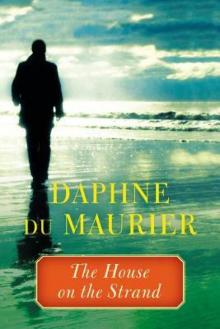 The House on the Strand
The House on the Strand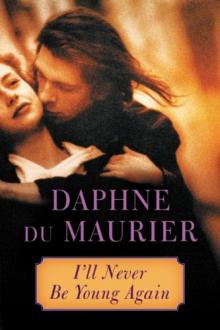 I'll Never Be Young Again
I'll Never Be Young Again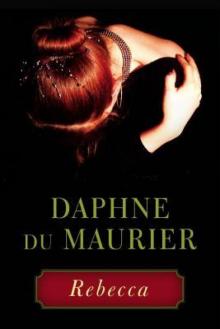 Rebecca
Rebecca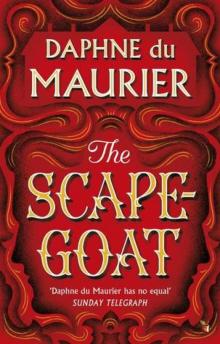 The Scapegoat
The Scapegoat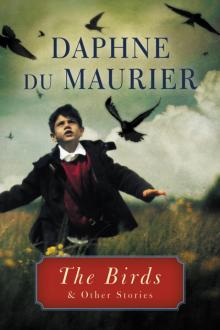 The Birds and Other Stories
The Birds and Other Stories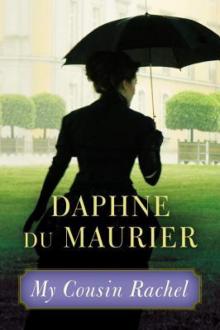 My Cousin Rachel
My Cousin Rachel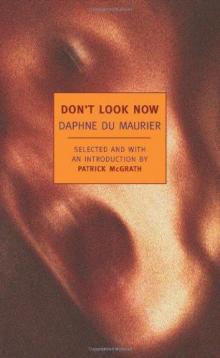 Don't Look Now
Don't Look Now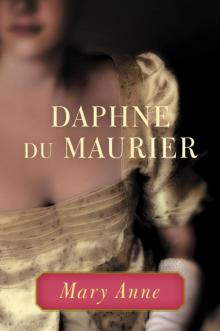 Mary Anne
Mary Anne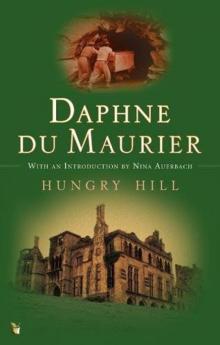 Hungry Hill
Hungry Hill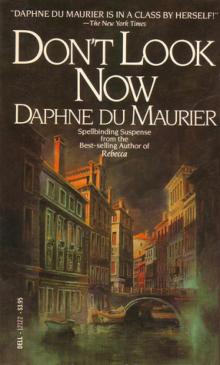 Don't Look Now and Other Stories
Don't Look Now and Other Stories The Loving Spirit
The Loving Spirit Rule Britannia
Rule Britannia The King's General
The King's General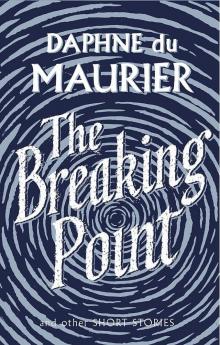 The Breaking Point: Short Stories
The Breaking Point: Short Stories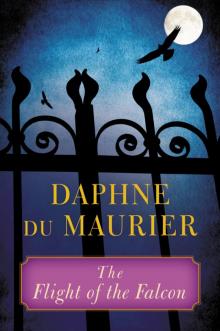 The Flight of the Falcon
The Flight of the Falcon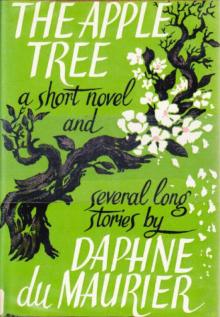 The Apple Tree: a short novel & several long stories
The Apple Tree: a short novel & several long stories The Breaking Point
The Breaking Point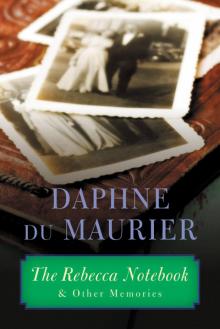 The Rebecca Notebook
The Rebecca Notebook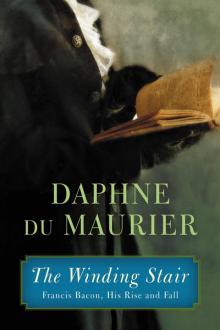 The Winding Stair: Francis Bacon, His Rise and Fall
The Winding Stair: Francis Bacon, His Rise and Fall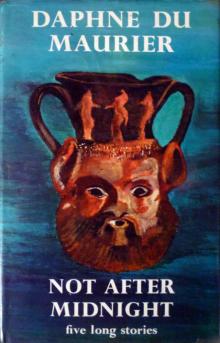 Not After Midnight & Other Stories
Not After Midnight & Other Stories The Doll
The Doll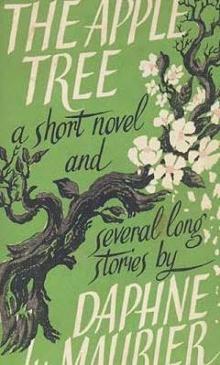 The Apple Tree
The Apple Tree